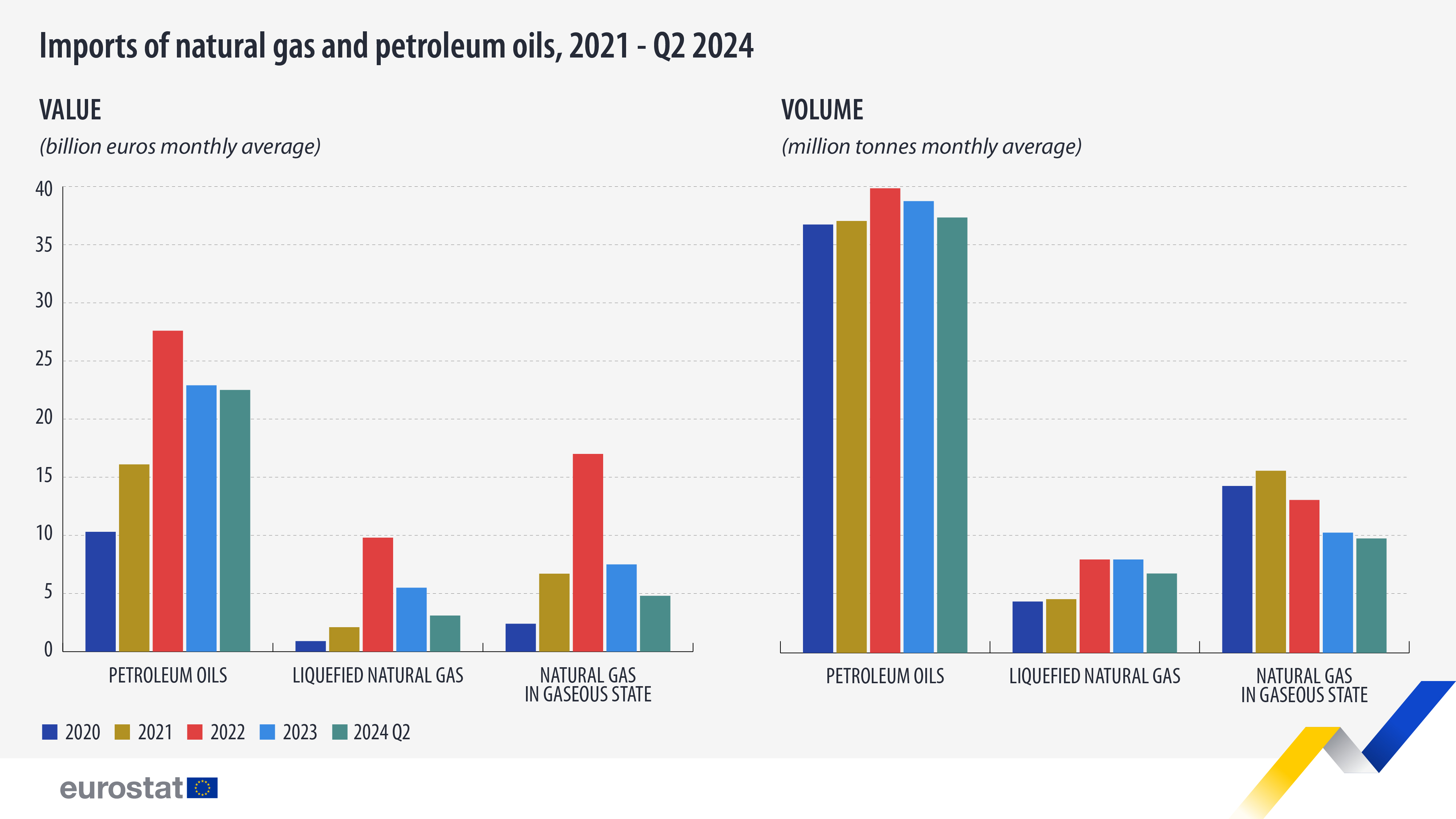EU energy imports down in 2nd quarter 2024, Eurostat says. Both in value and volume that’s a big drop from last year.
Total energy product imports were down 10.7% in value and 9.7% in weight compared to the same period in 2023. The main reason was a big fall in gas imports, down 31.4% in value and 9.5% in volume. LNG imports were down 41.2% in value and 20.2% in volume.
Petroleum oil imports were up 5.6% in value but down 2.2% in volume. The US, Norway and Kazakhstan were the main importers of petroleum oil for the EU. Norway, Algeria and Russia were the top gas suppliers, the US was the main LNG supplier to the EU, followed by Russia and Qatar.

Good news for the EU which is trying to reduce its fossil fuel dependence and diversify its energy sources. But the current geopolitical tensions and global economic uncertainties will make it hard to sustain this trend.
The EU has energy efficiency measures in place such as building regulations, appliance standards and incentives for renewable energy. That’s led to overall energy consumption reduction and lower imports.
Energy Diversification: The EU is diversifying its energy mix, reducing its dependence on Russian gas. That means investments in renewable energy (solar and wind) and imports from alternative suppliers like the US and Norway.
The war between Russia and Ukraine has had a big impact on global energy markets. Western sanctions on Russia have disrupted its energy exports and the EU is looking for alternatives. The war has also led to higher energy prices and the EU is cutting back on consumption.
While the EU is doing well on energy imports, there’s still plenty of work to do. The low-carbon transition requires big investments in renewable energy infrastructure and grid modernisation. And the geopolitical landscape is still volatile and disruptions in energy supply chains can be a threat to EU energy security.
The EU will continue to push for energy transition and diversification. But it will only work if policy support is maintained, technology advances and international cooperation. As the EU gets more sustainable and resilient, that’s good news but we must stay vigilant and look ahead.


